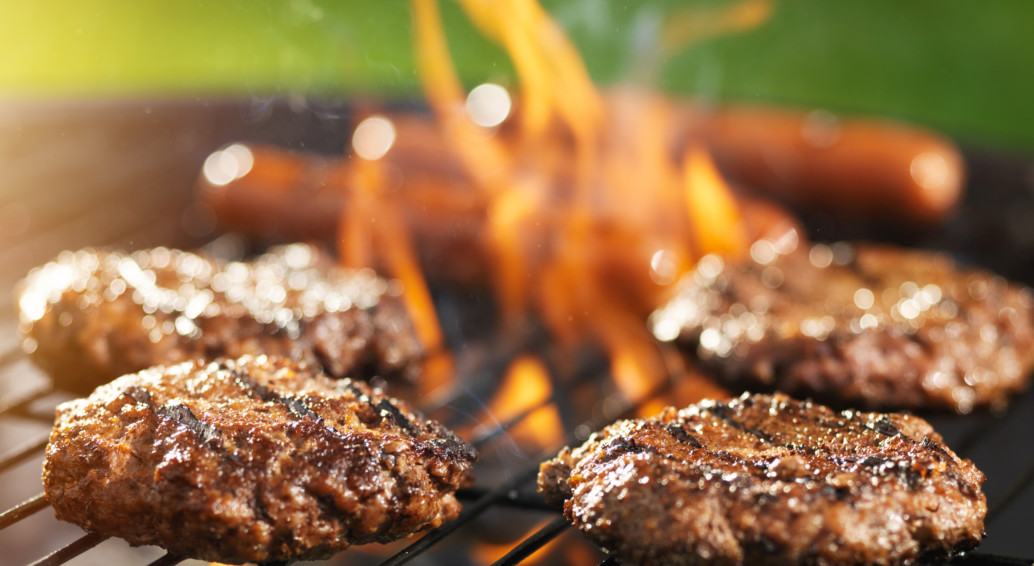Meat-Grilling Tips

Reducing the Amount of HCAs and PAHs
Outdoor grilling is a popular cooking method, primarily because of the wonderful taste it imparts on meats. It can also be a healthy alternative to other cooking methods, because some of the meat’s saturated fat content is reduced by the grilling process. However, grilling also presents a health risk. Two separate types of carcinogenic compounds are produced by high-temperature grilling:
Heterocyclic amines (HCAs)
HCAs form when a meat is directly exposed to a flame or very high-temperature surface. The creatine-rich meat juices react with the heat to form various HCAs, including amino-imidazo-quinolines, amino-imidazo-quinoxalines, amino-imidazo-pyridines, and aminocarbolines. HCAs have been shown to cause DNA mutation, and may be a factor in the development of certain cancers.
Polycyclic aromatic hydrocarbons (PAHs)
PAHs form in smoke that’s produced when fat from the meat ignites or drips on the hot coals of the grill. Various PAHs present in the resulting smoke, including benzo[a]pyrene and dibenzo[a,h]anthracene, adhere to the outside surface of the grilled meat. PAH exposure is also believed to be linked to certain cancers.
HCA and PAH content in meats can be dramatically reduced by slight alterations in your grilling method. In particular, the following practices will reduce the amount of HCAs and PAHs formed:
1. Select leaner meats.
Leaner cuts of meat are less likely to drip fat on the grill and produce PAH-laden smoke.
2. Marinate meats before grilling.
Researchers have determined that marinating meat prior to grilling, even for just a few minutes, can reduce HCA formation by 90% or more. It’s believed that the marinade forms a protective barrier for the meat juices that prevents the HCA reaction from occurring.
3. Grill at lower temperatures.
Lower temperature “roasting” also greatly reduces HCA formation.
4. Prevent flare-ups.
Flames from grill flare-ups cause the formation of both HCAs and PAHs. Keep an eye on your grill and turn meats frequently to minimize the chance of flare-ups.
5. Don’t overcook meats.
While it’s important to cook poultry and ground meats thoroughly, be careful not to overcook any meat. Well-done or burnt meats contain higher levels of HCAs than less cooked meats. For thicker cuts of meat, use a meat thermometer to measure doneness rather than just guessing.
Source: nutritiondata.self.com